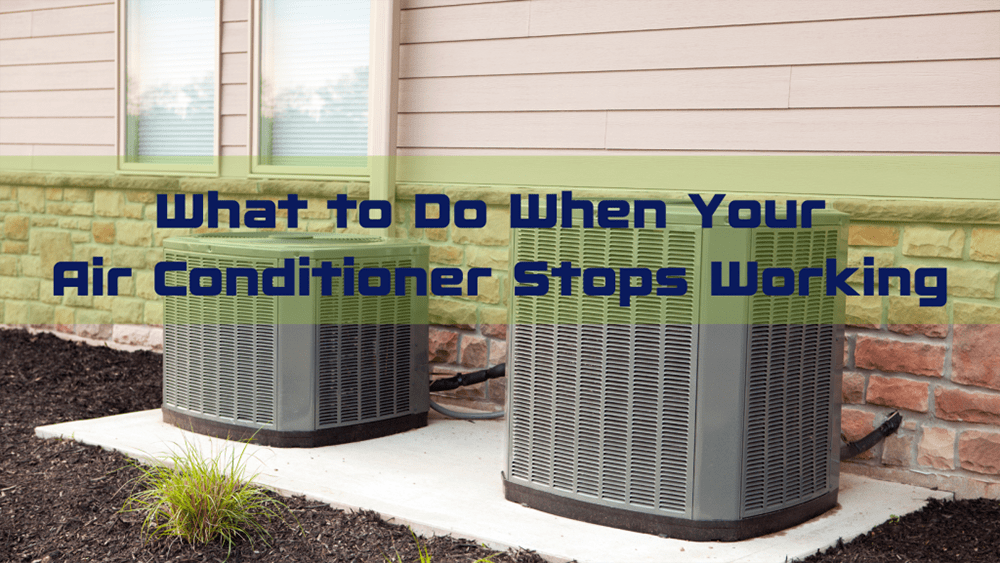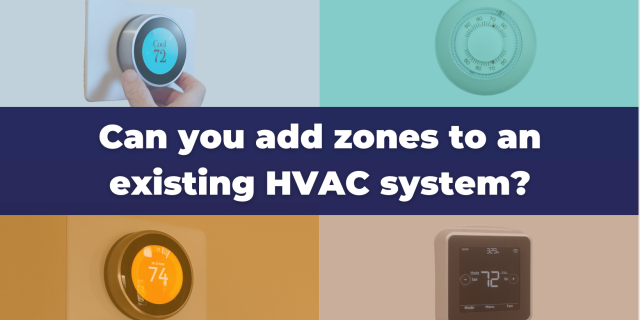What to Do When Your Air Conditioner Stops Working

As the summer months approach, the last thing we want is for our air conditioner to stop working and leave us with no cooling. But, unfortunately, it can happen. So what should you do when you’re left with an uncomfortable home? This blog post will discuss steps to take if your air conditioner suddenly quits.
Check the thermostat when your AC stops
If you find yourself sweating in your home even though your air conditioning unit is on, there might be a problem with your thermostat. Sometimes, the thermostat may not work correctly, causing the AC unit to run ineffectively. So it is essential to check the thermostat’s temperature settings and ensure they are accurate. Additionally, you should confirm that the thermostat’s batteries are in good condition. You want to avoid discovering that the batteries have died, preventing your air conditioning unit from running correctly. Once you have checked the thermostat and ensured it works properly, you can check the air filter.
Check your air filter if the air conditioner isn’t working
A dirty filter can restrict airflow, causing your unit to work harder and possibly malfunction. To check your filter, turn off your unit and locate the filter in your duct system. It should be near the blower unit or the return air grille. Remove the filter and check it for any signs of damage or clogs. If the filter looks dirty, replace it with a new one. If it is a washable type, take it out and clean it with mild detergent and let it dry completely before reinstalling.
A clean filter can help improve your air conditioner’s performance and efficiency and extend its lifespan. Be sure to replace your filter every one to three months to keep your air conditioner running smoothly. If you have pets or live in a particularly dusty area, you may need to replace it more often.
Note what you see, feel, and hear when your AC quits
When your air conditioner stops working, note what you are experiencing. For example, is your house noticeably warmer than it should be? Is there a lack of airflow coming from the vents? Are you hearing strange sounds like rattling or buzzing? Additionally, write down any other relevant details, like when you first noticed the problem or if there were any recent power outages in your area. Taking note of these observations can help you communicate effectively with your HVAC technician and aid them in diagnosing the problem more accurately. The more information you have, the easier it will be to troubleshoot the issue and get your air conditioner back up and running.
Check the circuit breaker and disconnect switch
It is also important to check the circuit breaker and disconnect switch to ensure they are not tripped or turned off. The circuit breaker is in your home’s electrical panel, while the disconnect switch is located near your air conditioner’s outdoor unit.
Start by locating your home’s electrical panel and checking to see if the circuit breaker for your air conditioner has been tripped. If so, reset it by switching it off and then on again. You may need to consult the user manual for your air conditioner or call a professional if you need help determining which circuit breaker controls your air conditioner.
Next, head outside and check the disconnect switch to ensure it is on. Some disconnect switches also have fuses that must be changed if blown.
Checking the circuit breaker and disconnect switch are easy and essential steps when your air conditioner stops working. However, if neither seems to be the issue, it is time to call a professional for further inspection and repair.
Turn off your air conditioner unit
If you have tried all the previous steps and your air conditioner is still not working, it is time to turn it off. Leaving your malfunctioning air conditioner on can cause more damage to your unit, leading to even more costly repairs. To turn off your air conditioning unit,
- Turn the equipment to the off position on the thermostat.
- Locate the circuit breaker or disconnect switch near your outdoor unit.
- Flip the switch to the off position to completely cut off power to your A/C.
- If you need help locating the disconnect switch or are unsure how to turn your unit off, call a professional for help.
Call an HVAC professional if it’s still not working
Schedule an appointment with a licensed HVAC technician as soon as possible to diagnose and repair the issue. In the meantime, keep cool by using fans, keeping your shades drawn, and limiting your use of heat-producing appliances. With these tips, you can survive the summer heat until your air conditioner is up and running again.






